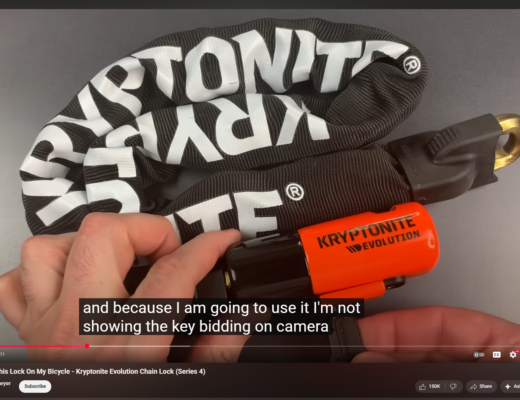What Are Overages and How Do They Work?
When someone loses their home to foreclosure (either tax or mortgage foreclosure), the property is typically sold at auction. If that property sells for more than what was owed, the extra money—called overages—legally belongs to the former homeowner. For example, if someone owed $50,000 in taxes on a $400,000 home and the home sells at auction for $300,000, there is $ 100,000 in overage available for the former owner to claim.
The problem? Most people are unaware that this money exists. They assume everything is lost when their home is foreclosed. According to Bob, approximately 72% of these funds go unclaimed and are eventually forfeited to the government after about three years.
This is where the business opportunity comes in. By identifying these overages through public records, contacting the former homeowners, and helping them claim their money for a percentage fee, you create value for everyone involved.
Why This Business Model Is Worth Considering
Several aspects of this business make it particularly attractive:
- Low startup costs—primarily time and minimal administrative expenses
- No legal background required (though you may occasionally need to hire an attorney)
- Contingency-based model where you only get paid when your client gets paid
- Scalable from a side hustle to a full business with a team
- Consistent supply of potential clients (approximately 4,800 foreclosures daily across the US)
What makes this especially interesting right now is the current state of the housing market. Home values have nearly doubled in many areas over the past five or six years. This means many foreclosed properties have substantial equity, creating larger overage amounts than we’ve historically seen.
The Human Element Makes All the Difference
Beyond the business mechanics, what resonates with me is the human impact. When you contact someone who’s lost their home—often at their lowest point—and tell them there’s money waiting for them, you’re changing lives. As Bob mentioned, sometimes you’re essentially giving them their down payment back, giving them a fresh start.
These aren’t just statistics—they’re real people in tough situations who need help. The skepticism you’ll encounter is natural, but when people realize you’re genuinely there to help them claim money they didn’t know they were owed, the gratitude is immense.
I’ve always believed that true prosperity isn’t just about making money—it’s about creating a positive ripple effect in the lives of others. This business model embodies that philosophy perfectly.
Building a Business vs. Having a Job
One insight that resonated with me was Bob’s observation about wealth creation. Very few people get wealthy from a job alone. Even when you’re highly compensated, you’re still trading time for money in a linear manner.
A business like this can be structured to operate independently of your constant involvement. Bob shared how he recently broke his leg, yet his company continued to operate because he had built systems and a team. That’s the difference between owning a business and simply owning a job.
For those seeking financial freedom, this distinction is crucial. The goal isn’t just to make money—it’s to build something that can eventually generate income without requiring your daily presence.
Is This Business Right for You?
This opportunity isn’t for everyone. It works best for people who:
- Have good business management skills
- Genuinely want to help people in difficult situations
- Have sales experience or are comfortable with the persuasion process
- Want to build a business rather than just have another job
What I appreciate about Bob’s approach is his transparency. He has created a presentation that explains the business in detail, so you can determine if it’s a good fit for your skills and goals.
In my experience helping people create cash flow, I’ve found that the most successful ventures align with your strengths and values. This overachieving business offers the potential for alignment with the right person, combining financial opportunity with meaningful impact.
Whether you’re looking to create a side business or build something that could eventually replace your primary income, this model deserves consideration. In a world where many companies either require substantial startup capital or provide questionable value, finding an opportunity that genuinely helps others while creating wealth is refreshing.
Frequently Asked Questions
Q: How much money can you make in the overages business?
The income potential varies based on your effort and the deals you pursue. Some people work part-time on larger deals ($100,000-$200,000 in overages) and complete 5-6 deals annually. Others build full teams and handle many more cases. Since you typically earn a percentage of what you recover for clients, the income scales with the size and number of deals you complete.
Q: Do you need to be an attorney to run this type of business?
No, you don’t need to be an attorney. While Bob Diamond is an attorney, he emphasizes that this isn’t legal work—it’s primarily about filling out forms correctly. In some cases, you might need to hire a local attorney (typically costing $2,000-$2,500), but this isn’t required for most claims.
Q: How much time does each case typically take?
According to Bob, each case typically requires about 8-10 hours of work from start to finish. The administrative costs are minimal, at around $100 per case for mailing and processing. The most challenging part is usually convincing skeptical homeowners that this opportunity is legitimate.
Q: Is this business sustainable with current foreclosure rates?
Yes. While foreclosure rates are historically low, there are still approximately 4,800 foreclosures happening daily across the US (3,000 tax foreclosures and 1,800 mortgage foreclosures). With money typically remaining available for claim for three years, there’s a substantial pool of potential clients. Additionally, current economic conditions suggest foreclosure rates may increase in the near future.







